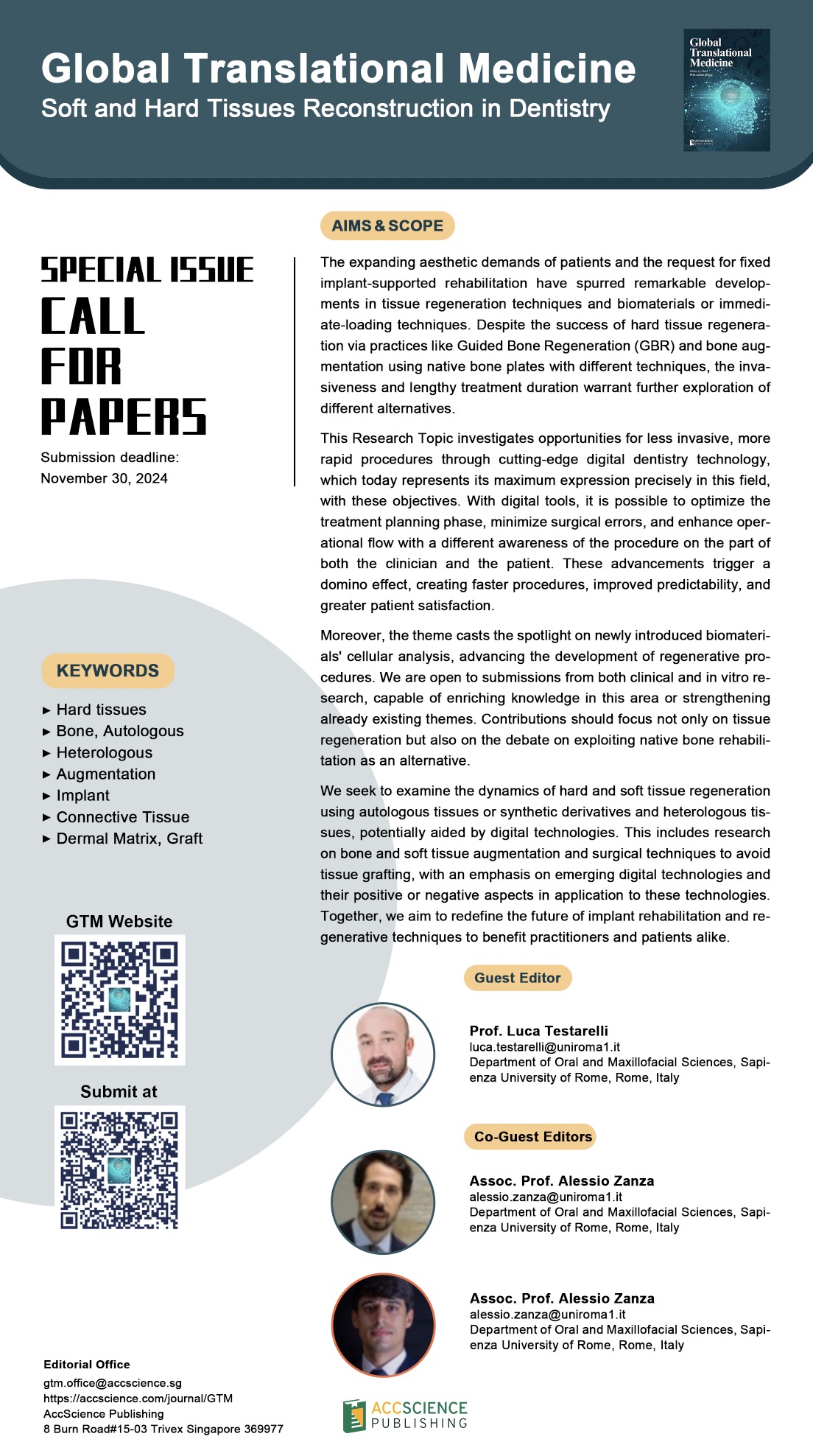
Department of Oral and Maxillofacial Sciences, Sapienza University of Rome, Rome, Italyrestorative dentistry; esthetic dentistry; implant dentistry; clinical dentistry; dental caries; aesthetic dentistry; endodontics; mechanical properties; fracture; finite element analysis

The expanding aesthetic demands of patients and the request for fixed implant-supported rehabilitation have spurred remarkable developments in tissue regeneration techniques and biomaterials or immediate-loading techniques. Despite the success of hard tissue regeneration via practices like Guided Bone Regeneration (GBR) and bone augmentation using native bone plates with different techniques, the invasiveness and lengthy treatment duration warrant further exploration of different alternatives.
This Research Topic investigates opportunities for less invasive, more rapid procedures through cutting-edge digital dentistry technology, which today represents its maximum expression precisely in this field, with these objectives. With digital tools, it is possible to optimize the treatment planning phase, minimize surgical errors, and enhance operational flow with a different awareness of the procedure on the part of both the clinician and the patient. These advancements trigger a domino effect, creating faster procedures, improved predictability, and greater patient satisfaction.
Moreover, the theme casts the spotlight on newly introduced biomaterials' cellular analysis, advancing the development of regenerative procedures. We are open to submissions from both clinical and in vitro research, capable of enriching knowledge in this area or strengthening already existing themes. Contributions should focus not only on tissue regeneration but also on the debate on exploiting native bone rehabilitation as an alternative.
We seek to examine the dynamics of hard and soft tissue regeneration using autologous tissues or synthetic derivatives and heterologous tissues, potentially aided by digital technologies. This includes research on bone and soft tissue augmentation and surgical techniques to avoid tissue grafting, with an emphasis on emerging digital technologies and their positive or negative aspects in application to these technologies. Together, we aim to redefine the future of implant rehabilitation and regenerative techniques to benefit practitioners and patients alike.
Author registration and submission: https://accscience.com/user/login. Submit your paper along with a cover letter, including the special issue title. Your paper will undergo a fair peer review and be published immediately after acceptance and will be available to an international audience.
Influence of neodymium-doped yttrium aluminum garnet laser exposure time on cytokine secretion in lipopolysaccharide-challenged rat peripheral blood mononuclear cells
Patient-oriented and clinical considerations supporting the single-incision subepithelial connective tissue harvest
Optimization of gelatin-based cell carriers for tooth-germ organoids



